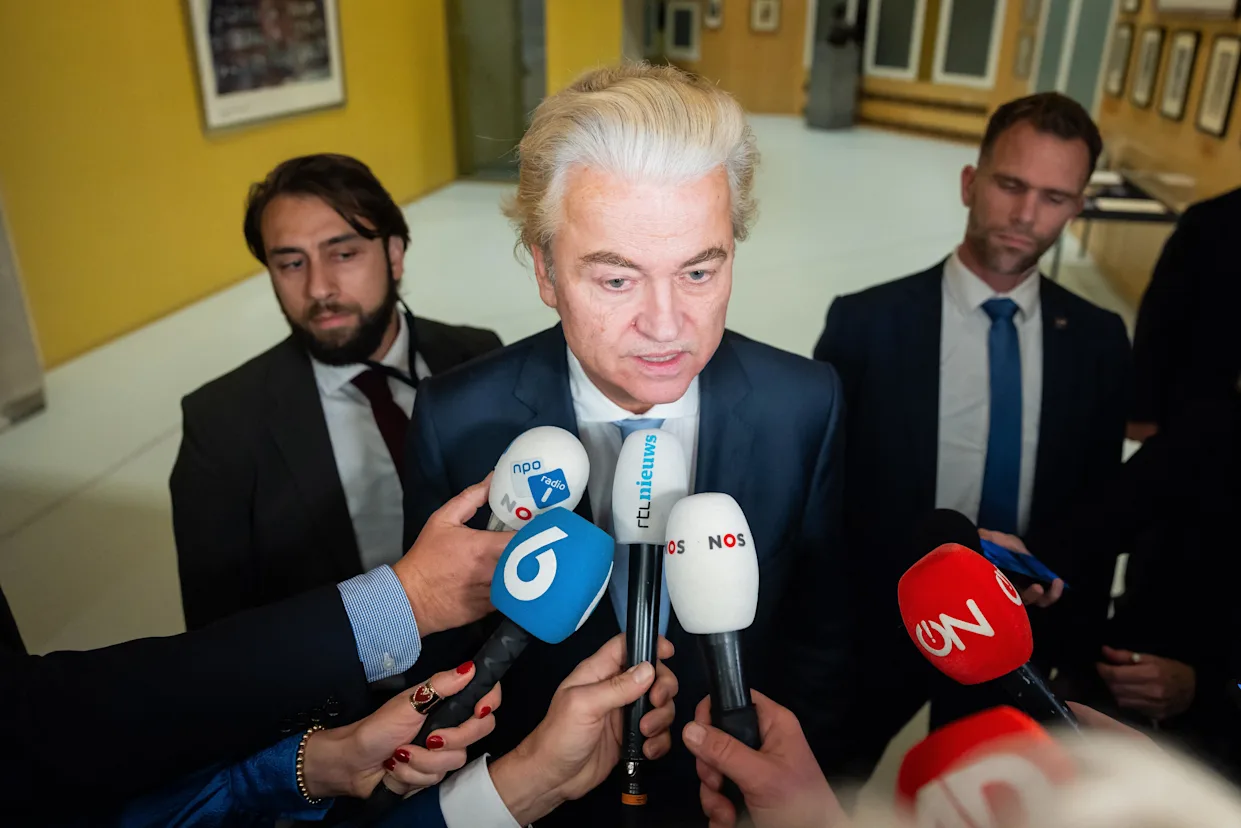The Netherlands’ latest general election has concluded in an unprecedented deadlock, signaling a dramatic shift in the country’s political landscape and setting the stage for complex coalition negotiations. In a remarkable outcome, the centrist Democrats 66 (D66) party, led by Rob Jetten, and the far-right Freedom Party (PVV) of Geert Wilders each secured 26 seats in the 150-seat House of Representatives. This tie, never before seen in Dutch history, underscores the polarization and fragmentation now characterizing Dutch politics.
Election Overview: Gains, Losses, and Voter Sentiment
The D66 party emerged as the surprise winner of the election, nearly tripling its representation in parliament compared to the previous cycle. Its success is attributed to a campaign emphasizing housing affordability, climate action, and inclusive governance. Voters appeared drawn to D66’s moderate, policy-focused message, viewing it as a viable alternative to extreme or populist positions.
Rob Jetten, 38, has quickly become a prominent figure in Dutch politics. If successful in forming a government, he would not only be the youngest prime minister in Dutch history but also the first openly gay individual to hold the position, reflecting a generational and cultural shift in leadership.
Meanwhile, the PVV, which had risen in prominence in previous elections, experienced a significant setback. Its controversial positions on immigration, Islam, and European integration, coupled with internal party instability, contributed to its decline. Additionally, splinter right-wing parties appear to have siphoned votes away from Wilders, further weakening the PVV’s position.
Public opinion indicates a clear rejection of far-right politics by a majority of mainstream parties. Leaders across the political spectrum have ruled out the possibility of including Wilders in a governing coalition, citing ideological differences and the party’s polarizing stance.
Coalition Building: A Delicate Political Puzzle
With no single party achieving a majority, coalition negotiations have become the focal point of Dutch politics. Forming a coalition in the Netherlands has traditionally been complex, requiring parties to compromise on policy and leadership positions to achieve the 76-seat threshold necessary for a majority.
Rob Jetten and D66 appear best positioned to lead coalition talks, as most mainstream parties have rejected any partnership with the PVV. Potential coalition partners include the Labour Party, the Green Left, the Christian Democratic Appeal (CDA), and the People’s Party for Freedom and Democracy (VVD). Analysts predict that the resulting coalition may require four or more parties, making governance a delicate balancing act between competing policy priorities and ideological differences.
Wilders, despite being tied for the top spot in parliamentary seats, is effectively sidelined from government formation. His exclusion by other parties underscores the challenges that far-right movements face in translating electoral gains into governing power when their policies are seen as extreme or unworkable.
Implications for Dutch Politics
Moderation Over Polarization
The election results signal a voter preference for moderation and collaborative governance. After years of political tension and the rise of populist movements, Dutch voters appear to favor centrist parties capable of delivering practical solutions over divisive rhetoric.
Role of Smaller Parties
Smaller and fringe parties gained several seats in this election, increasing their influence in the coalition-building process. These parties could act as “kingmakers,” exerting disproportionate influence over the policy direction and priorities of the next government.
Generational and Cultural Shift
If Rob Jetten succeeds in forming a coalition, the Netherlands will experience a generational shift in leadership. His age, progressive outlook, and focus on social inclusion mark a departure from traditional political leadership, potentially reshaping Dutch politics for years to come.
Next Steps in the Political Process
- Final Vote Counts
Overseas and postal ballots are still being counted, leaving a small margin of uncertainty in seat allocation. - Exploratory Talks
The House speaker will appoint party delegates to explore possible coalition arrangements. These talks will determine which alliances are feasible and which parties are likely to be part of the next government. - Negotiation Phase
Coalition formation is expected to take several weeks or even months. Negotiations will require compromise on policy issues ranging from climate action and economic reform to immigration and European Union relations. - Potential Government Formation or Fresh Elections
If coalition talks stall, the Netherlands could face an extended period without a stable government or, in a worst-case scenario, a call for new elections.
Broader European Context
The Dutch election outcome reflects a broader European trend of political fragmentation and cautious voter behavior. While some countries have seen a rise in populism and far-right movements, the Netherlands’ results suggest that centrist, policy-oriented parties can still command significant influence when voters seek pragmatic governance.
Additionally, the emergence of younger, more diverse political leaders like Rob Jetten points to a generational shift in European politics, where new voices are increasingly shaping policy debates and challenging established political norms.
Conclusion
The 2025 Dutch general election represents a historic and complex moment in the nation’s political history. With a tie between D66 and the PVV, coalition negotiations will be critical to forming a functioning government. Voter behavior reflects a desire for moderation, policy-driven leadership, and collaborative governance, signaling both a rejection of extremism and an openness to generational change.
As negotiations unfold, all eyes will be on Rob Jetten and his ability to unite diverse parties under a cohesive platform. The coming weeks and months will determine not only the composition of the next Dutch government but also the broader trajectory of political leadership and governance in the Netherlands.
















Leave a Reply